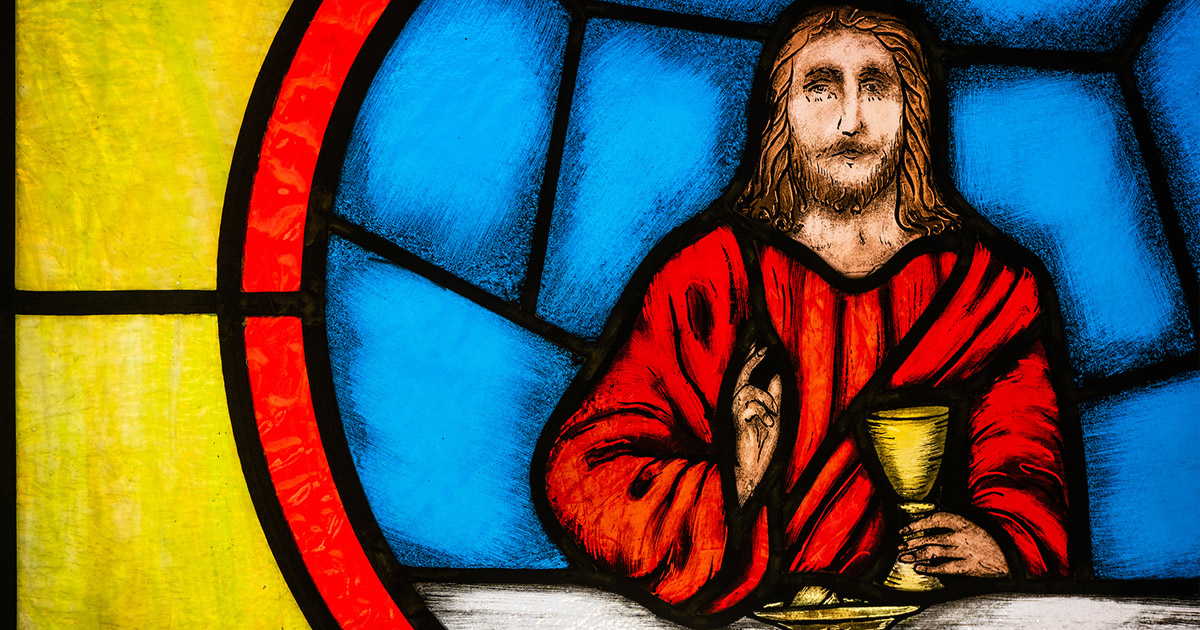
Gathering in person for the first time since February 2020, The Lutheran Church—Missouri Synod (LCMS) Council of Presidents (COP) met Sept. 7–11 in St. Louis. They heard reports from Synod leaders, listened to several ministry presentations, and discussed matters of doctrine and administration of the Synod.
One significant point of discussion was the practice of online/virtual Communion. Various public health orders during the COVID-19 pandemic limited or prohibited churches from gathering for corporate worship. Therefore, congregations and pastors sought other ways of providing spiritual care to their members. Many churches have made their services available online, and a few have celebrated Communion remotely. The COP has discussed at length their serious concerns about this practice.
At issue is how best to provide the Sacrament in accord with Scripture and the Lutheran Confessions amid restrictions prohibiting in-person worship. After some discussion, the COP passed a resolution: “To Encourage Advocating In-Person Communion.”
The resolution notes that the Systematics departments of both seminaries and the Synod’s Commission on Theology and Church Relations (CTCR) have issued opinions that have “unequivocally and unanimously argued against the practice of online or virtual communion.”
“I think it’s time for us to come clear on the issue,” said Synod President Rev. Dr. Matthew C. Harrison. “What I’m concerned about at this point is that we resolve the issue, as the practice is becoming so ingrained in the few parishes where it’s done that we are on the verge of a permanent practice.”
“It is troubling the church,” said LCMS Fifth Vice-President Rev. Christopher Esget, who urged the council to take the time to deal with the matter. The final text of the resolution, passed unanimously, included the following:
- Resolved, that we commend the desires of faithful pastors to care for their flocks in a time of pandemic, granting charity and latitude to our brothers in the office due to the emergency nature of the situation confronting us all; and be it further
- Resolved, that the Synod’s district presidents and those who assist them be counseled and urged, in their work of supervision, visitation, evangelical counsel, care, and admonition, to encourage and exhort the members of the Synod, congregational and individual, and their conferences, to give due, urgent, and careful consideration to the scriptural and confessional witnesses advanced in the noted statements, especially in advance of the 2023 National LCMS convention; and be it finally
- Resolved, to counsel and urge the same to entreat the congregations and pastors of their districts, on the basis of the above statements, to refrain from the practice of online communion.
Read the full resolution here.
Church and state
Also during the September meeting, Greg Baylor and Sherri Huston of Alliance Defending Freedom gave an overview of what is at stake in pending and proposed legislation at the state and national levels. “Our freedom to live out our beliefs about marriage, sexuality and human life — these are being challenged,” said Baylor, who asked, “What will the world look like if they prevail?”
Baylor and Huston suggested ways that individual Christians, congregations and denominations could respond, ultimately urging action. “We need to be a visible, vocal voice,” said Baylor. “The church has been shy, but these threats are calling us.”
Doctrine and practice
At a previous COP meeting, a task force was charged with addressing divisions of doctrine and practice in the Synod and their harmfulness to the church’s life together. The Rev. Dr. R. Lee Hagan, president of the LCMS Missouri District and task force chair, said, “We’re not proud of what we see across the Synod and in the districts heading into convention. We will have two [COP] resolutions for voting on in November.”
Hagan stressed that “we also want to gather around the Word of God” as he introduced the Rev. Terry Forke, president of the LCMS Montana District, who led the group in a Bible study.
Harrison urged the COP to “get a group on both sides to talk through the issues and work on them.” He challenged each one to “think well of the other,” saying, “It works!”
Hagan presented a proposed statement for the COP to discuss and vote on: “Maintaining the Unity of the Spirit through the Bond of Peace.” The discussion will be resumed at the November meeting.
Entity reports
Jim Sanft, president and CEO of Concordia Plans; David Fiedler, president of the LCMS Foundation; and the Rev. Bart Day, president and CEO of Lutheran Church Extension Fund, each gave an update on the work of their organizations and shared new offerings and resources for congregations and individuals in the LCMS. All three organizations weathered the pandemic well, with each leader describing challenges and blessings coming out of the past 18 months.
Presentations, other business
The Rev. Dr. Joel Biermann, professor of Systematic Theology at Concordia Seminary, St. Louis (CSL), spoke on “Sabbath, Work and Leisure: Live the Vita Passiva,” and his colleague, the Rev. Dr. Leopoldo A. Sánchez M., director of CSL’s Center for Hispanic Studies, offered a summary presentation of the CTCR report Immigrants Among Us.
The council also discussed the paper “The Relationship of the Pastoral Office with the Auxiliary Church Offices,” a document prepared by the Clergy Call and Roster Committee, to address concerns and share ideas about ways to strengthen and foster positive relationships between the pastoral and auxiliary offices.
Each day began and closed under the Word of God as chaplains led the group in devotions and prayer. The next meeting of the COP is scheduled for Nov. 14–19 in St. Louis.
Read more
- CTCR opinion and addendum — ‘Communion and COVID-19’
- CSL and CTSFW statement — ‘Communion in a Time of Social Distancing’
Posted Oct. 27, 2021